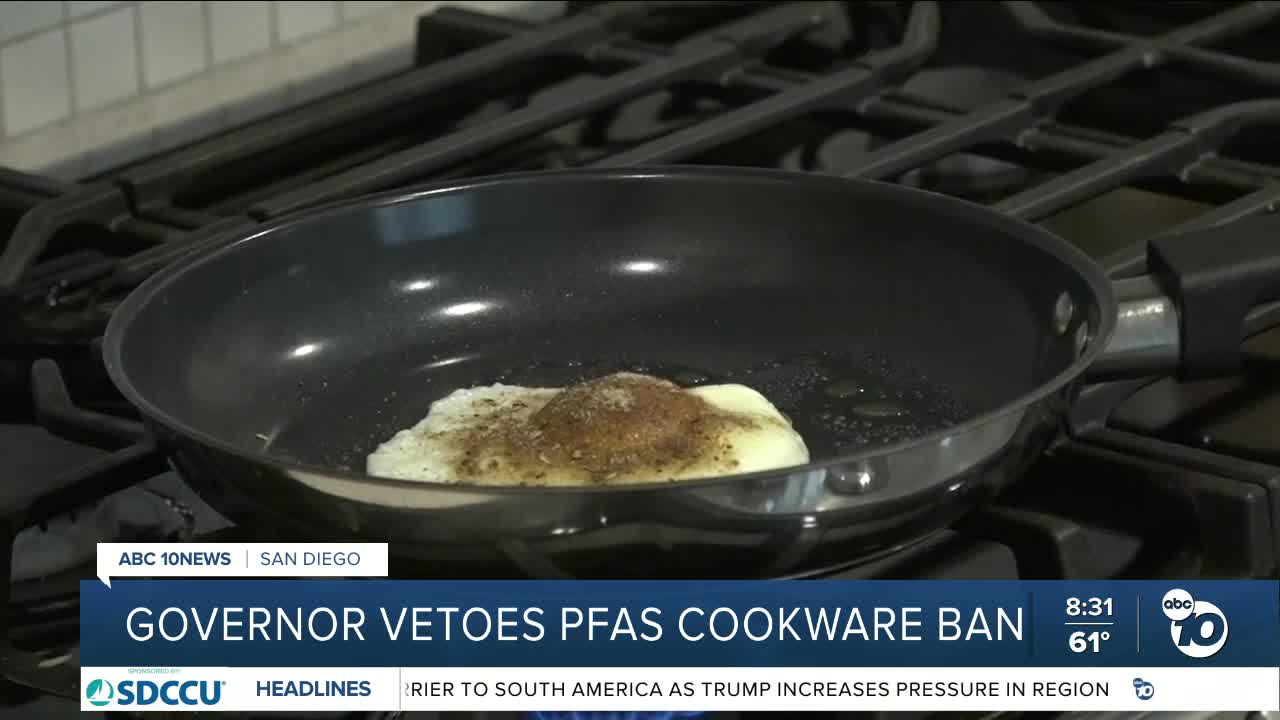SAN DIEGO (KGTV) — Non-stick pans, a staple in many kitchens, have recently gotten a bad rap for being made with PFAS.
The chemicals have been around for decades, but new research has linked some of them to health and environmental concerns.
"There are some alterations in the hormone system, particularly with thyroid hormones," UCSD Public Health Professor Jose Suarez said. "They have been associated with certain cancers, like kidney and testicular cancer, and they have been associated with different adverse reproductive health on women and in males.”
That’s one reason why state lawmakers pushed a bill to phase out PFAS in consumer products across California.
But Governor Gavin Newsom vetoed that bill this month, a move some in the cookware industry support.
“There were chefs around the country expressing their concern about this because they use these products, they stand by these products," Steve Burns, president of the Cookware Sustainability Alliance said. "This is their livelihood.”
Burns says not all PFAS are the same, and the type used in cookware is different.
"This one is safe because it's completely different in its molecular structure, and it does not dissolve in water and it will not penetrate a human cell membrane. It's too inert," Burns said.
He says the term PFAS actually covers thousands of substances, some proven harmful, others deemed safe by regulators and even other countries.
“For a researcher to say PFAS is a non-stick cookware is 100% accurate. I'm simply saying we have to look a little bit more closely at what does that mean," Burns said.
Still, environmental groups like the Natural Resources Defense Council say the governor’s veto was “unfortunate,” stating:
“The veto message misleadingly points to concerns about the availability of cookware on shelves and the timeline for the transition. But the truth is, there are myriad alternatives already available—and they are available at the same price points.”




